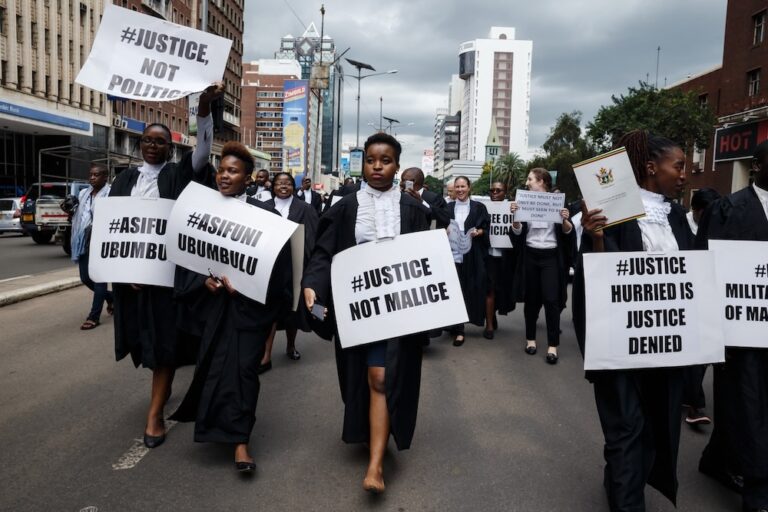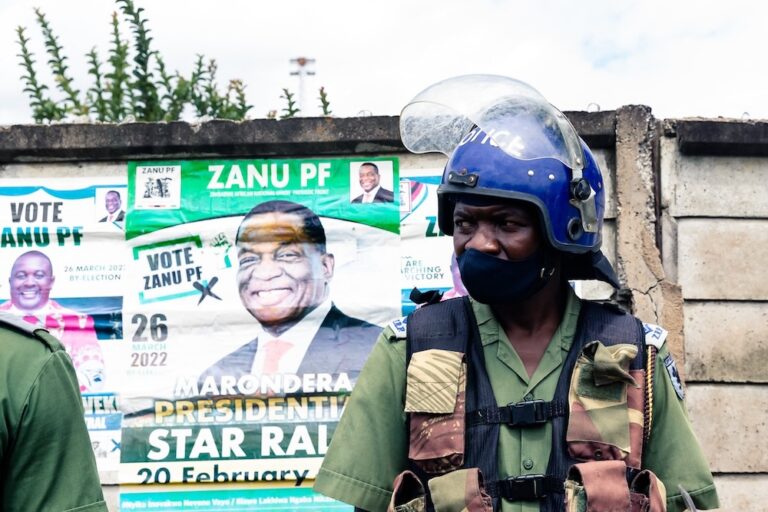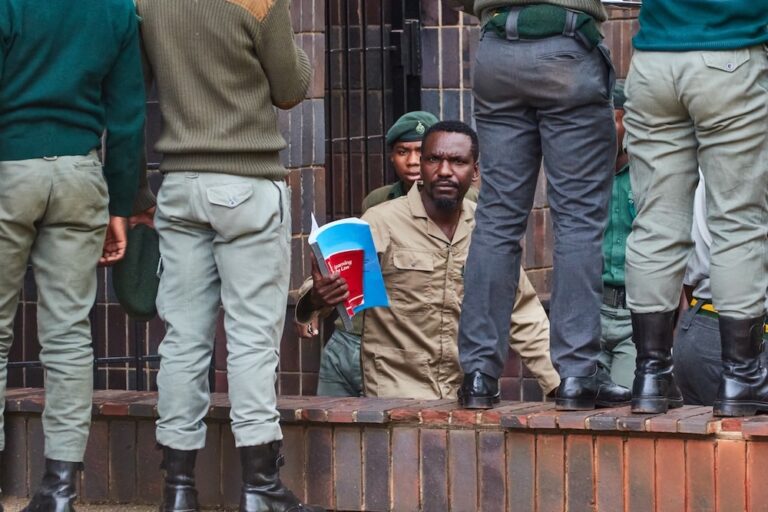**Updates IFEX alert of 3 May 2000** (MISA/IFEX) – On 14 June 2000, the Zimbabwe Supreme Court rejected an urgent application by a prospective independent radio station, Capital Radio, to nullify Section 27 of the Broadcasting Act. The Court also rejected the demand by Capital Radio that it be issued with a licence to broadcast […]
**Updates IFEX alert of 3 May 2000**
(MISA/IFEX) – On 14 June 2000, the Zimbabwe Supreme Court rejected an urgent application by a prospective independent radio station, Capital Radio, to nullify Section 27 of the Broadcasting Act. The Court also rejected the demand by Capital Radio that it be issued with a licence to broadcast in Zimbabwe within ten days.
In its judgement, the court dismissed the application, saying there was no urgency to issue Capital Radio with a broadcasting licence since the government had taken enough steps to amend the Broadcasting Act.
The Zimbabwe Broadcasting Corporationâs (ZBC) director general was quoted in “The Herald” newspaper as saying that he welcomed the Supreme Court decision, adding that the ZBC was carrying out its duties impartially by allowing all political parties and the general public to participate in its programmes.
“The Herald” also reported that Capital Radio, which calls itself “The Voice of the People” and claims to champion democracy, human rights and gender equality in Zimbabwe, started broadcasting from an unknown location on 13 June. The station, which transmits programmes on short-wave frequency at 7,125 kilohertz, is suspected to be based either in South Africa or Europe.
Minister of Information Chen Chimutengwende told “The Herald” that the government had launched investigations to ascertain “the people or forces behind the station.” He said “We have launched investigations. If they are working from outside the country, as we suspect, they don’t need a broadcasting licence from the government.” The Minister likened the station to a radio station active during the liberation struggle called Radio Truth, which used to propagate white supremacist propaganda and anti-black nationalist sentiments.
However, MISA-Zimbabwe understands that the station which went on air on Tuesday was in fact not connected to Capital Radio at all.
The application by Capital Radio with respect to overturning certain sections of the Broadcasting Act will still proceed as a normal application. It will most likely be heard in August or September, but no exact date for the hearing has been set.
BACKGROUND:
Capital Radio filed an application in April with the Supreme Court, challenging the Broadcasting Act which gives the ZBC the monopoly over the airwaves in Zimbabwe.
Micheal Auret and Gerry Jackson, the partners in Capital Radio, were challenging Section 27 of the Broadcasting Act, which does not allow anyone other than ZBC to operate a radio station in the country.
In an affidavit filed with the Supreme Court, Minister of Posts and Telecommunications Chenhamo Chimutengwende, and Attorney General Patrick Chinamasa were cited as first and second respondents and intervener respectively.
Capital Radio wanted to be granted a licence to operate a radio station on any FM frequency because they argued that the ZBC had failed to perform their duty as a public broadcaster.
They argued that Section 27 of the Broadcasting Act was unconstitutional and infringed on the public’s right to receive and impart information as well as the right of expression.
Another application was lodged at the Supreme Court by Munhumutape African Broadcasting Corporation, who are challenging to be allowed to set up an independent television station. The case must still come before the court.


